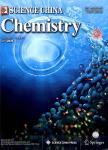Design and preparation of a crosslinkable,oil-resistant,and bio-based elastomer from fumarate
作者机构:Beijing State Key Laboratory of Organic-Inorganic Composites&Beijing Laboratory of Biomedical MaterialsBeijing University of Chemical TechnologyBeijing100029China Hubei Key Laboratory of Polymer MaterialsFaculty of Materials Science and EngineeringHubei UniversityWuhan430062China
出 版 物:《Science China Chemistry》 (中国科学(化学英文版))
年 卷 期:2024年第67卷第2期
页 面:622-631页
核心收录:
学科分类:081702[工学-化学工艺] 08[工学] 0817[工学-化学工程与技术]
基 金:supported by the National Key Research and Development Program of China (2022YFC2104700) the National Natural Science Foundation of China (52273003,51988102)
主 题:diethyl fumarate molecular design bio-based elastomer solvent-free synthetic route high-temperature oil resistance
摘 要:Poly(diethyl fumarate-co-methoxyethyl acrylate-co-vinyl chloroacetate)(PDEFMV),a novel bio-based elastomer with a saturated structure,was synthesized via redox emulsion *** glass-transition temperatures of PDEFMV,adjusted through the variation of the diethyl fumarate-to-methoxyethyl acrylate feeding ratio,ranged from-36.1 to-14.8 ℃.The number-average molecular weights of PDEFMV ranged from 384,000 to 46,000 g/*** designing the molecular structure,vinyl chloroacetate was used to provide active sites for subsequent vulcanization and *** active chlorine groups within the PDEFMV chain reacted with the crosslinking agent trithiocyanuric acid under high temperature and pressure to form a nonsulfur crosslinked three-dimensional network *** achieve the desired properties,carbon black(CB,N330) was incorporated to reinforce PDEFMV,leading to the formation of PDEFMV/CB composites.A comprehensive study was conducted on the high-temperature oil resistance of PDEFMV/CB *** immersion in IRM903 oil at temperatures of 150 and 200 ℃ for 72 h,the mass and volume changes in PDEFMV/CB were lower than those observed in commercially available acrylate rubber(AR)/CB,indicating that PDEFMV exhibited superior oil ***,the aging characteristics and mechanisms of oil resistance in the PDEFMV/CB and AR/CB composites were investigated at different temperatures(150,200,and 250 ℃).The results provide insights into the operational temperature ranges suitable for PDEFMV/CB and offer valuable guidance for potential industrial applications.



